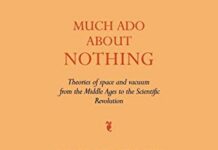
Ebook Info
- Published: 2001
- Number of pages: 408 pages
- Format: PDF
- File Size: 1.61 MB
- Authors: Edward Grant
Description
Between 1100 and 1600, the emphasis on reason in the learning and intellectual life of Western Europe became more pervasive and widespread than ever before in the history of human civilization. Of crucial significance was the invention of the university around 1200, within which reason was institutionalized and where it became a deeply embedded, permanent feature of Western thought and culture. It is therefore appropriate to speak of an Age of Reason in the Middle Ages, and to view it as a forerunner and herald of the Age of Reason that was to come in the seventeenth century. The object of this study is twofold: to describe how reason was manifested in the curriculum of medieval universities, especially in the subjects of logic, natural philosophy and theology; and to explain how the Middle Ages acquired an undeserved reputation as an age of superstition, barbarism, and unreason.
User’s Reviews
Reviews from Amazon users which were colected at the time this book was published on the website:
⭐This book is a survey of the teaching and writing of scholars at medieval universities. Grant has written many papers and books on medieval science; his “A Source Book in Medieval Science” is comprehensive and is especially good. Because Grant has such a magisterial knowledge about scholastic science, he is unusually qualified to make general remarks about the work of scholastics.The book contains uncommonly many block quotations from secondary literature. This was particularly noticeable with subjects like law and medicine, about which Grant does not have the same knowledge he does about natural philosophy. However, if you’re writing a survey and want to mention topics of which you do not have mastery, then it is indeed more useful to the reader and more candid to give well chosen quotations from well chosen authors than to give an inadequate presentation yourself.Grant shows many examples of natural philosophy embedded in writings of medieval theologians. A prominent example of this is the discussion of the infinite. If God is not constrained by laws of the natural world (namely, God is supernatural), then at best God is constrained by logical rules, and this led to theologians talking about problems detached from whether they are consistent with natural laws, but merely whether they are logically possible. For example, Gregory of Rimini argues that God can create an infinity of angels in an hour by creating one angel in the first half of the hour, another angel in the in the first half of what remains, another angel in the first half of what remains, etc., and that at the end of the hour there will be infinitely many angels. It is easy to dismiss questions of this type as frivolous, and indeed if one thinks angels are the point of the question then it may be silly. But the significance of these writings is that they developed difficult concepts like the infinite and developed ways of talking precisely about these concepts. It would be similarly thoughtless to attack economists for writing about the production of widgets.
⭐Edward Grant was one of the true greats when it came to medieval intellectual history. This study corrects the oft-repeated idea that the middle ages was a period of intellectual stagnation by highlighting the many positive developments to occur in the 12th through 14th century. Grant’s central argument is that medieval thinkers saw the world as structured according to reasoned principles, because God is perfectly reasonable and infused the laws of reason into the cosmos. Thus, medieval thinkers recovered and built upon Aristotle’s logic in order to understand the world around them due to, rather than in spite of, their religious beliefs. It’s a very strong argument and one that shows the debt the modern world owes to the middle ages.
⭐A very helpful look at the role of reason in the theology, philosophy, and logic of the Middle Ages. Grant does a great service to students and scholars by distilling a broad variety of primary sources into a manageable size for non-experts in this field.
⭐Excellent to investigate about the debates between philosophers and theologicians during the late middle ages.
Keywords
Free Download God and Reason in the Middle Ages in PDF format
God and Reason in the Middle Ages PDF Free Download
Download God and Reason in the Middle Ages 2001 PDF Free
God and Reason in the Middle Ages 2001 PDF Free Download
Download God and Reason in the Middle Ages PDF
Free Download Ebook God and Reason in the Middle Ages


